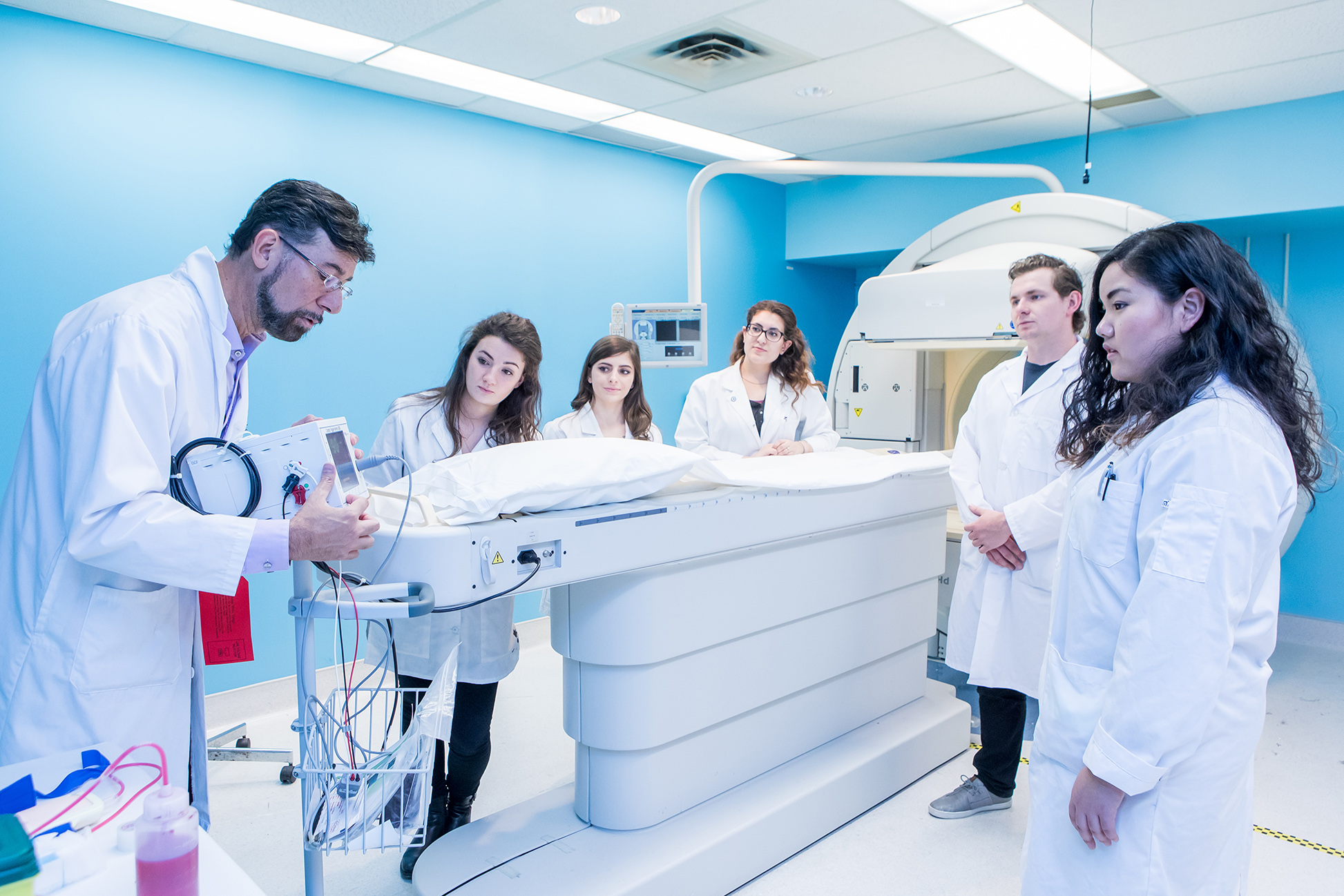Overview
Program Code
TRN
Credential Earned
Bachelor of Science in Medical Radiation Sciences from the University of Toronto and Advanced Diploma from The Michener Institute of Education at UHN
Program Type
Full-Time
Program Delivery
Hybrid
Application Method
Visit the University of Toronto website for application requirements, deadlines and procedures
Hybrid Specifications
On-site with online components (University of Toronto’s St. George Campus and Michener’s St. Patrick Campus)
About the Program
The Nuclear Medicine & Molecular Imaging Technology Program (NMMIT) is a joint educational program offered through the University of Toronto and The Michener Institute of Education at UHN. The program is designed using hybrid delivery of course curriculum, which gives students a well-balanced approach to learning by participating in both online and in-person educational experiences with instructors, peers and clinical educators.
Theory is put into practice by examining increasingly complex case studies and applying knowledge in both simulated and clinical environments. NMMIT allows students to experience all aspects of the profession, including:
- Preparing radiopharmaceuticals and handling radioactivity in Michener’s radiopharmacy lab
- Imaging using gamma cameras
- Single-Photon Emission Computed Tomography (SPECT)/ Computed tomography (CT)
- Bone Mineral Densitometry (BMD) scanners
- Providing patient care with simulated patient actors
- Research opportunities
- Exploration of emerging technologies in Positron Emission Computed Tomography (PECT)/ Computed tomography (CT)
- Theranostics
- Interprofessional collaboration
Graduates are eligible to write the national certification examination conducted by the Canadian Association of Medical Radiation Technologists (CAMRT). Certification qualifies graduates to work across Canada and allows them to apply for registration as a nuclear medicine technologist with the College of Medical Radiation and Imaging Technologists of Ontario (CMRITO).
The NMMIT program is accredited by Accreditation Canada. Accreditation is a quality improvement process that ensures educational programs meet national standards and that students acquire the knowledge, skills, and competencies for safe and effective care at entry to practice.
About the Profession
Nuclear Medicine Technologists apply detail oriented technical skills in a compassionate, patient- focused model of care. They use minimally invasive procedures targeted at the diagnosis of specific disease pathologies based on their cellular function in comparison to normal tissues. The highly specific nature of how tracers localize in the body and are imaged, allows for comprehensive diagnostic information using minimally invasive procedures. Determination of tumour or injury location, size, treatment planning and response to treatment can all be accomplished with a small injection of a tracer in a patient’s arm for the majority of procedures with minimal pain or risk of adverse events.
Molecular Imaging uses highly specialized imaging cameras capable of detecting the radiation coming from the tracer inside the patient and form an image which visualizes the biochemical events at the cellular and molecular level, which is unique to any other imaging modality. This is a field of diagnostic imaging that is continually advancing. Its ability to identify regions of pathology and mechanisms of disease, has shown effective for predictions in tumor responsiveness to radiation treatments prior to their administration, which is a growing field known as nuclear theranostics.
Graduates are employed in a variety of clinical environments including community or teaching hospitals, independent health facilities, research institutes, public health institutions, regulatory bodies, commercial radiopharmacies, education, and medical imaging equipment sales or applications.
The program is exceptional because you gain extensive knowledge about nuclear medicine imaging, get hands-on experience with gamma cameras and practice your patient care skills.

